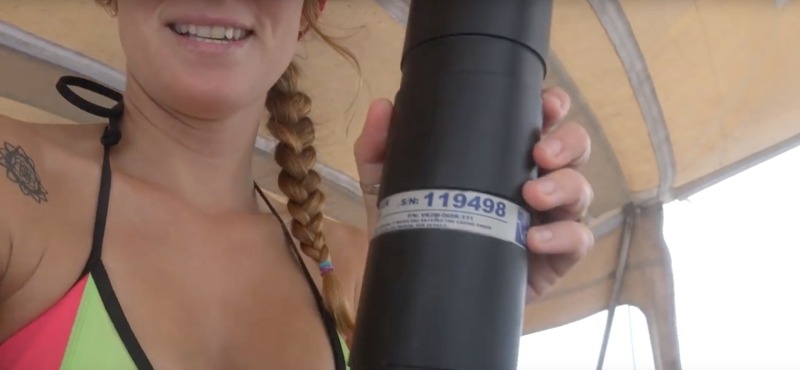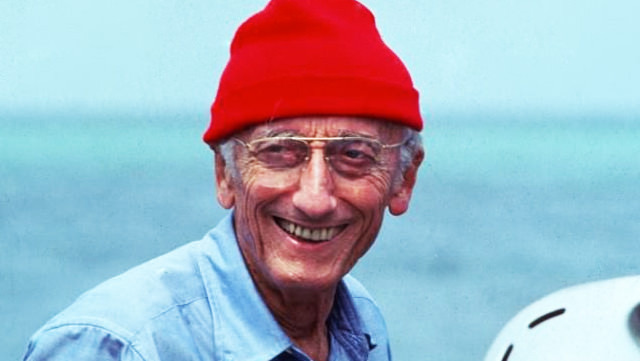
The Ocean Research Project
Late one Friday, we poured ourselves a cold beverage and got cozy with the laptop for the new episode of Delos. In episode 185, the crew had left Rio de Janeiro and was anchored in the Abrolhos archipelago, a national marine park made up of five islands. Delos met up with a group of Brazilian researchers who were tagging sea turtles. "It’s just as we suspected," said Brady Trautman. "A bunch of really cool people out here who care about the environment and are doing research and stuff."
As it turns out, Delos was doing a bit of their own research. One of the crew dropped a microphone (or hydrophone) off the stern to listen for acoustic pings from tagged sea life. They were collecting data for the Ocean Research Project’s Volunteer Sailing for Science program. The ORP aims to foster "scientific exploration under sail in pursuit of the knowledge necessary to better understand human-induced stress on the Ocean," according to its website. "Citizen science has proven successful at solving major scientific challenges, [and] is uniquely suited to addressing some of the challenges presented by ocean research."

"We got involved with the project from a pretty badass sailor and ocean activist: Matt Rutherford," said Alex Blue, referring to the first person to sail singlehanded nonstop around the Americas from Annapolis, through the Northwest Passage, down to Cape Horn and back to Annapolis. In a TED Talk, Rutherford said he’d done his circumnavigation as a fundraiser for a local nonprofit. After seeing the state of the ocean during his trip, Rutherford immediately founded the ORP upon his return. (Bay Area sailor Randall Reeves said that Rutherford’s first-of-its-kind route inspired him to conceive of "a super-long, super-interesting trip," which would eventually become the Figure 8 Voyage.)
ORP’s strategy reflects something we’ve heard recently from other innovators of ocean research, namely Alameda’s Saildrone, whom we profiled in the August issue. The traditional research-vessel model — where one large, slow, expensive, diesel-guzzling ship plows through the ocean and deploys its millions of dollars of instruments — is not necessarily well-suited to widespread data collection. When considering the size of the ocean and the unimaginable abundance of information to be observed, recorded and cataloged, a single ship is a drop in the bucket, where the aggregate of a few thousand cruisers, not to mention the greenness of their means to get from A to B, may yield meaningful data in the long term.
We don’t mean to disparage the research-vessel model; indeed, there’s a proud history of scientists going to sea aboard big ships. Jacques Cousteau has had an immeasurable impact on ocean conservation, and no doubt inspired generations of explorers. (The Delos crew seems to have adopted the red beanie, or wool caps that Cousteau (and Steve Zissou’s crew in The Life Aquatic) famously sported.)

So we’re curious: Is there anyone out there who’s ever heard of or is currently participating in the Ocean Research Project’s volunteer citizen science program? Or are you out there doing your own brand of amateur research? Do you think that we’ve reached a new ethos in the cruising world, where sailors are taking a more active role in environmental issues? We’d like to know what you think.
